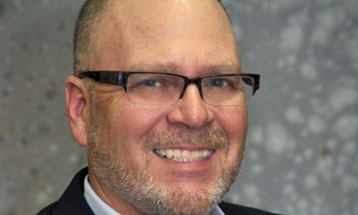“If a CEO wants to grow his company, I believe it’s essential to be in a roundtable,” says Milam, who joined PeerSpectives in 2011. “It gives you a place where you can process your issues and get unvarnished feedback that is hard to come by.” In contrast to consultants who have a specific point of view or employees who will be reticent to criticize the boss’s ideas, Milam explains that roundtable members hold nothing back.
In the roundtable, participants address diverse challenges that range from risk mitigation to raising capital to personnel. Within the latter, sales management and hiring of salespeople is a perennial hot topic.
Milam recalls a time when he had to terminate a key executive who wanted equity in the company. “Before he came on board, I told him that I wouldn’t give up equity, and if that was his expectation, we should end the conversation,” Milam recalls. “Yet he assured me that we could work it out.” At first the executive was content to receive phantom stock, but later began to pester Milam for real equity, which created a tense situation. “The roundtable strongly encouraged me not to give in,” Milam says. “As a result, I felt confident telling him that this wasn’t going to work, and he needed to go his way.”
Although Milam has participated in other CEO roundtables, he praises PeerSpectives for its compact format — a monthly four-hour session. “The vetting and pacing of issues also makes it different,” he says. “There’s more intentionality about talking about issues that have a common theme for everyone. The pace keeps it productive and relevant for everyone.”
The fact that a trained facilitator leads the roundtable is also a factor in the program’s success, Milam says: “Leading entrepreneurs is like herding eagles. You have to create an environment in which they are comfortable — and getting them to be vulnerable, stick to the issues and challenge them is no easy task.”
In addition to discussing specific challenges, roundtable members are also exposed to guest speakers who have expertise in different disciplines. Milam recalls a finance professor who recommended having company books audited by a reputable firm and having a legal review of processes to preserve a company’s value in case of an acquisition. “That was an aha moment for me,” he says.
Other takeaways for Milam include:
- Improved decision-making. Milam has no qualms making big decisions — or fast ones — but has learned that taking the time to glean additional perspectives can greatly improve outcomes. “Because the roundtable’s feedback has been valuable in the past, it’s an easy call for me to say, ‘OK, I’m going to slow down and wait until next month so I can process this issue with them.’ ”
- Camaraderie. Being in a roundtable alleviates the isolation that business owners typically feel. “There’s a unique sort of a brotherhood-sisterhood relationship,” Milam explains. “You can relax and be vulnerable about your issues rather than having to be ‘the boss’ who has it all together. The roundtable is a safe environment to admit that you don’t have all the answers and need help.”
- Peace of mind. Because CEOs are exposed to so many diverse issues in the roundtable, it alleviates misgivings that you may be missing something. “You can be productive, do your job and not have to constantly worry that the shoe is going to drop,” Milam says. “Granted, the shoe may still drop, but at least you’ve done everything you can to avoid it. I sleep pretty well at night. And that’s a testament that I have a solid business because I’ve been in roundtables.”
Copyright © 2015 by the Edward Lowe Foundation Case study: EnableSoft Inc
